Showa 17.9 Toriimatsu Type
14 Photos
This Showa 17.9 (September,
1942) Type 14 was part of a deal that included a Showa16.2 Type 94 and 30 rounds of original
8mm Nambu ammo from a collector in Quebec. This particular Type 14 was of
interest to me since it is an early gun from the Toriimatsu factory of Nagoya
Arsenal and still has the rounded heads on the trigger hinge pin (later ones
had the heads machined flush with the trigger guard).
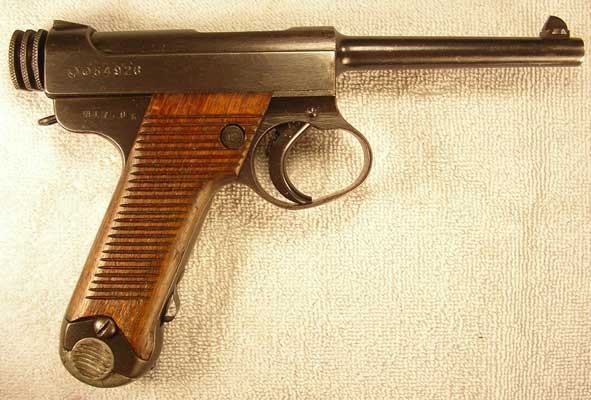
Here is the left side. There is some rough
machining around the hole for the sear bar retainer pin (just above the rear
edge of the grip panel).
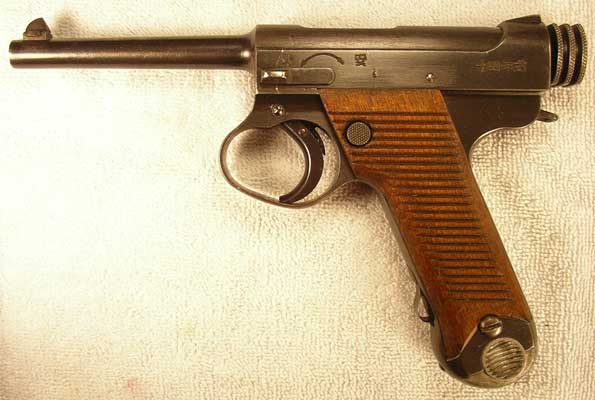
Here are the markings on the right
side of the frame. The first symbol means Nagoya Arsenal. The second symbol,
the “upsdide-down y in a circle”, is the katakana phonetic symbol i (prounounced “ee” as in week). It is
the indicator of the First Series (after 99,999 they attached a phonetic symbol
like this in front of the serial number each time they started another series
of 99,999). The date 17.9 below means the ninth month of the seventeenth year
of Emperor Hirohito’s reign, which translates to September, 1942. The character
in front of the date is Sho, short
for Showa, the name for Emperor
Hirohito’s reign. The small character
stamped to the right of the last digit in the date in the kanji na as in
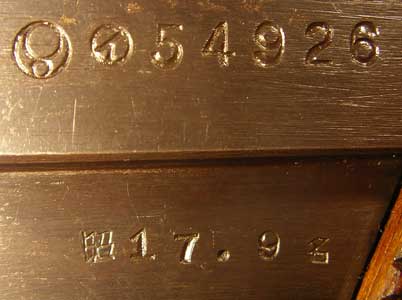
Here is the head of the trigger hinge pin on the right side. Note how the end has been swaged to keep it in place and rounded. Later guns (starting in Showa 18.2=February, 1943) had the heads machined flush. Note the last two digits of the gun’s serial number are visible on the right side of the trigger near the top. The third-last digit is also there but is hidden inside the trigger guard frame.

Same thing with the head of the trigger hinge
pin on the left side.
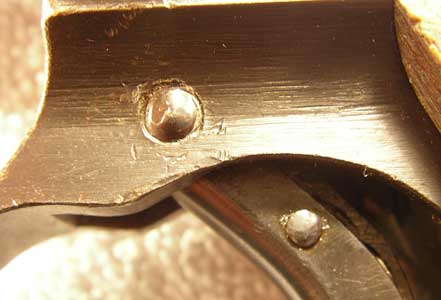
The
only part with a non-matching serial number is the cocking knob. It should have
the last three digits of the gun’s serial number on it (926). Instead it is marked
666.
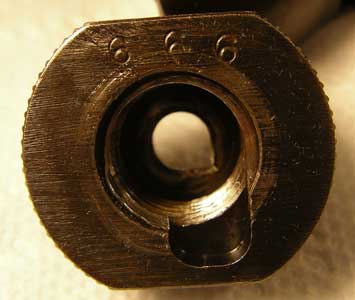
The mag does match. There are three
inspection marks on the mag under the serial number. On the left is an M.
Actually I think this is probably stylized mountains, as one sees a similar
design on a lot of army stuff (such as the hokobukuro
bags used to store service records and such, and some medals). In the middle is
the katakana phonetic symbol ri, which is the second syllable in Toriimatsu, the location
of the factory. On the right is the kanji (Chinese-origin character) na, the first
syllable in

A unique feature of Toriimatsu First Series
mags is that the follower button also has the three-digit serial number (926 in
this case) on the rear edge.
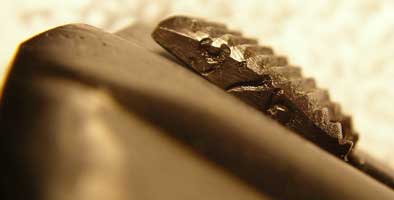
Toriimatsu pistols have blued
locking blocks. Here you can see from the very minor wear on the edges that
mate with the bottom of the bolt that the gun was fired very little.
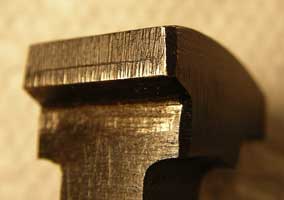
Under the grips the frame often has a lot of
pitting and corrosion from the sweat of the user’s hand, but this one is pretty
good.
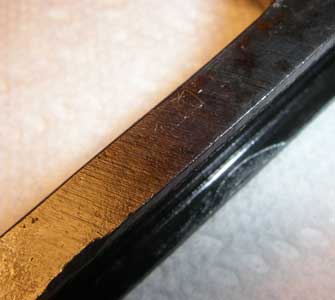
The front edge of the frame shows the typical
friction wear to the bluing from being pushed into a holster.
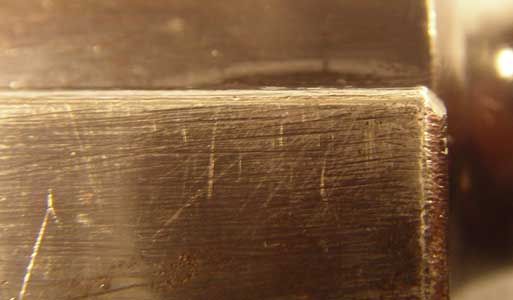
Another typical wear spot on the finish is
where the barrel extension goes inside the bridge on the frame.
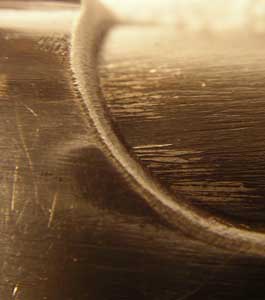
Click here to go back to the Type 14 Photo
Gallery: Teri's Japanese Handgun
Website: Type 14 Photo Gallery
Click here to go back to the main page: Teri’s Japanese Handgun Website
Last updated: August 18, 2005. All contents are copyright Teri unless
otherwise specified and may not be used elsewhere in any form without prior
permission.